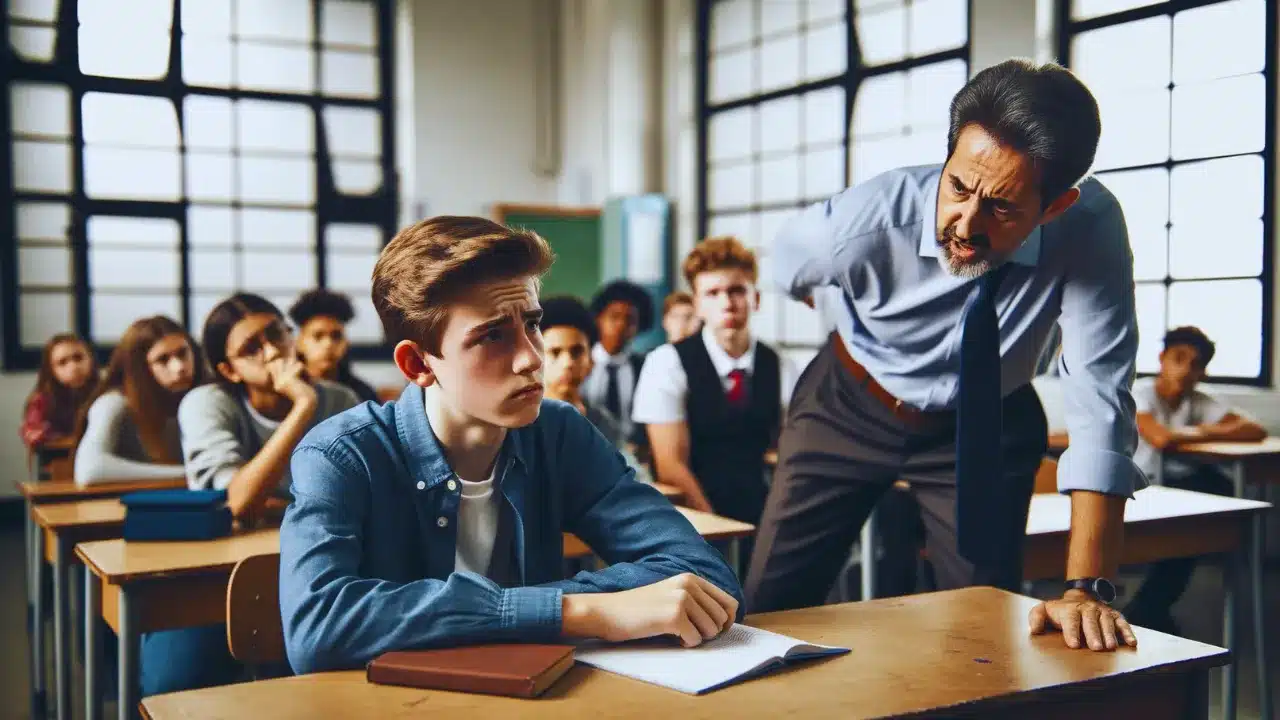Educational landscape, the complexity of legal issues faced by students, parents, educators, and institutions has increased. From disputes over student rights to compliance with education regulations, the need for specialized legal support in education has never been more critical. An education attorney is an expert who helps navigate this intricate world of education law. Whether addressing issues of discrimination, special education, teacher contracts, or school policies, an education attorney provides the necessary legal guidance and advocacy to ensure that rights are protected and justice is served.
What is an Education Attorney?
An education attorney is a specialized legal professional who focuses on laws and regulations governing the educational sector. These attorneys handle legal matters related to schools, universities, and other educational institutions. They offer expert legal advice and representation on a wide range of issues, from school discipline to student rights, special education, teacher contracts, and disputes between parents and educational institutions. Their expertise is crucial for navigating the complexities of education law.
Areas of Expertise for Education Attorneys
Education attorneys work on a variety of legal issues that arise within the educational environment. These can include school discipline, special education rights, student discrimination, teacher tenure, and disputes over policies or procedures. They also assist with ensuring compliance with local, state, and federal education laws, helping educational institutions avoid legal pitfalls and maintain proper procedures.
The Importance of Legal Support in Education
Legal issues in education can affect students, parents, teachers, and educational institutions alike. For example, disputes regarding student rights or violations of discrimination laws can have lasting effects on individuals’ lives. An education attorney’s role is to protect the rights of those involved and ensure that educational institutions follow the appropriate legal guidelines. Without proper legal counsel, individuals may struggle to navigate complex education laws, leading to potential legal risks and conflicts.
Disputes and Conflict Resolution
One of the primary tasks of an education attorney is resolving conflicts between various parties in the educational system. This includes mediating disputes between parents and schools, advocating for special education services, or addressing issues such as unfair treatment of students. Education attorneys are well-equipped to handle legal battles, ensuring that parties are treated fairly according to the law.
Compliance with Education Laws
Education law is extensive and constantly evolving, covering areas such as Title IX, IDEA (Individuals with Disabilities Education Act), and FERPA (Family Educational Rights and Privacy Act). Education attorneys play a pivotal role in ensuring that both public and private educational institutions comply with these laws. They guide schools and universities on proper procedures, preventing legal violations that could lead to lawsuits or loss of funding.
Why Hire an Education Attorney?
Hiring an education attorney is essential when dealing with any legal matters related to education. Their knowledge and expertise can protect your rights, whether you’re a student seeking accommodations, a parent involved in a school dispute, or a teacher addressing contract issues. By having a legal expert who specializes in education law, you ensure that your case is handled with the depth of knowledge and experience required for a successful outcome.
Key Areas of Education Law and Legal Support
| Legal Area | Description | Examples |
| Student Rights | Protecting the rights of students under the law | Freedom of speech, disability rights, and discrimination protection |
| Special Education | Ensuring proper educational opportunities for students with disabilities | IEP (Individualized Education Plan) disputes, Section 504 compliance |
| School Discipline | Handling legal matters related to student behavior and discipline | Expulsion, suspension, and due process rights |
| Teacher Employment | Addressing issues related to teacher contracts and employment rights | Contract disputes, tenure, and wrongful termination |
| Discrimination and Harassment | Legal support regarding claims of discrimination or harassment in educational settings | Racial, gender, and disability discrimination |
Why Do You Need an Education Attorney?
Education is one of the most fundamental aspects of society, and it is governed by numerous laws at the federal, state, and local levels. These laws aim to create a fair, inclusive, and supportive environment for learning. However, when these laws are violated or misunderstood, it can lead to significant consequences for students, teachers, and educational institutions.
- Specialized Expertise: Education law is highly specialized and requires a deep knowledge of both state and federal education regulations. An education attorney is equipped with this expertise, which helps ensure that your case is handled correctly.
- Representation in Disputes: If you are involved in a dispute with a school or educational institution, having an education attorney by your side will ensure you have the best chance of achieving a favorable outcome.
- Protection of Rights: Education attorneys work to protect the rights of students, parents, and educators. They ensure that individuals are not unjustly treated or discriminated against based on race, gender, disability, or other protected characteristics.
- Navigating Complex Laws: Education law can be highly complex, with numerous regulations that differ by state and country. An education attorney will guide you through these complexities to help you comply with the law.
- Negotiation and Settlement: Many education-related disputes can be settled without the need for formal litigation. An education attorney can help negotiate settlements, providing legal expertise that facilitates a fair resolution for all parties involved.
Types of Legal Issues Handled by Education Attorneys
Education attorneys address a variety of legal issues within both private and public education systems. These legal matters often include disputes over school discipline, special education rights, discrimination, student privacy, and teacher contracts. They also handle issues related to academic performance, bullying, and harassment, as well as compliance with state and federal education laws. Additionally, education attorneys represent parents and students in cases of wrongful expulsion, failure to provide accommodations, or violations of educational rights. Their expertise ensures that legal rights are upheld and that educational institutions comply with relevant laws.
Special Education Law
Special education law ensures that students with disabilities receive the education they are entitled to under federal laws like the Individuals with Disabilities Education Act (IDEA) and Section 504 of the Rehabilitation Act. Education attorneys specializing in special education law work to ensure that schools comply with these laws by providing students with appropriate accommodations and modifications.
Student Discipline and Rights
Education attorneys also handle cases related to student discipline. When a student faces suspension or expulsion, an attorney can help the student and their parents navigate the legal process. This includes ensuring that the students’ rights are protected and that the school follows the proper procedures. Additionally, students have various rights in educational settings, including freedom of speech, freedom of religion, and the right to a safe learning environment. Education attorneys can represent students whose rights have been violated or who have been unfairly disciplined.
Discrimination and Harassment
Education attorneys also play a critical role in fighting discrimination in educational settings. Federal laws like Title IX (prohibiting discrimination based on sex) and the Americans with Disabilities Act (ADA) are in place to protect students from harassment and discrimination. An education attorney can assist in cases where a student faces harassment, bullying, or discrimination based on race, religion, gender, or disability.
Teacher and Employee Rights
Teachers and educational staff members may encounter legal issues surrounding employment contracts, tenure, and wrongful termination. Education attorneys help educators understand their rights and represent them in disputes with school administrators. These attorneys also help teachers navigate issues like evaluations, disciplinary actions, and contract negotiations.
Higher Education Legal Matters
Education attorneys specializing in higher education law deal with legal issues related to colleges and universities. These can range from student code of conduct violations and academic integrity issues to faculty tenure and discrimination claims. They help students and staff handle a variety of legal matters within higher education institutions.
How to Choose the Right Education Attorney
Choosing the right education attorney is crucial for achieving the best possible outcome in any legal matter related to education. Here are some tips to help you select the right legal professional:
- Experience and Specialization: Ensure that the attorney has experience handling cases similar to yours, especially in the field of education law.
- Client Testimonials: Look for feedback from previous clients to gauge the attorney’s effectiveness in handling educational legal issues.
- Reputation: Choose an attorney with a strong reputation within the legal community and among educational institutions.
- Communication Skills: The ability to explain complex legal matters in an easy-to-understand manner is important for an education attorney. Ensure that they are accessible and communicative throughout the process.
- Cost: Legal fees can vary greatly. Make sure you understand the attorney’s fee structure and whether they offer flexible payment plans.
Factors to Consider When Choosing an Education Attorney
| Factor | Importance |
| Experience | Attorneys with relevant experience are better equipped to handle specific educational legal issues |
| Specialization | Education law can be broad, so choose an attorney who specializes in the specific area of your concern |
| Reputation | Positive client testimonials and peer recognition are indicators of reliability |
| Communication Skills | Clear and effective communication is key in legal matters, especially in education law |
| Cost | The cost structure helps in budgeting for legal services |
Wrapping Up
While “social media” is the most common term used to describe online platforms for interaction and content sharing, there are a variety of other expressions and synonyms that can be used depending on context. Whether referring to digital communities, social platforms, or networking sites, each term offers a unique perspective on how these technologies influence communication and society. As the digital landscape continues to evolve, so too will the language we use to describe these dynamic and ever-changing spaces.
FAQs
What is the role of an education attorney?
An education attorney provides legal support for various matters within the education sector. They help students, teachers, and schools navigate legal issues such as special education rights, school discipline, discrimination, and employment disputes within educational settings.
When should I contact an education attorney?
You should contact an education attorney when dealing with disputes related to school discipline, special education services, discrimination, harassment, or any situation where you believe educational laws have been violated.
How can an education attorney help with special education issues?
An education attorney can assist in ensuring that a child with disabilities receives the accommodations to which they are entitled under laws like IDEA and Section 504. They can advocate for the student, resolve disputes, and ensure the school complies with required accommodations.
Can an education attorney help with teacher employment disputes?
Yes, education attorneys specialize in teacher contracts, tenure issues, wrongful termination, and disputes between teachers and school administration. They can help resolve employment-related legal challenges.
What types of discrimination can an education attorney address?
Discrimination based on sexual orientation, gender, race, religion, or disability can be addressed by an education lawyer.. They help students and educators fight against unjust treatment and harassment in educational settings.
Are education attorneys only for students?
No, education attorneys can represent students, parents, teachers, and educational institutions. They assist anyone facing legal issues within the education system, including employment-related concerns for educators.
What is the price of hiring a lawyer for education?
The cost of hiring an education attorney can vary based on the complexity of the case and the attorney’s experience. Some attorneys work on a flat fee or hourly rate, while others may offer contingency-based fees depending on the case.








